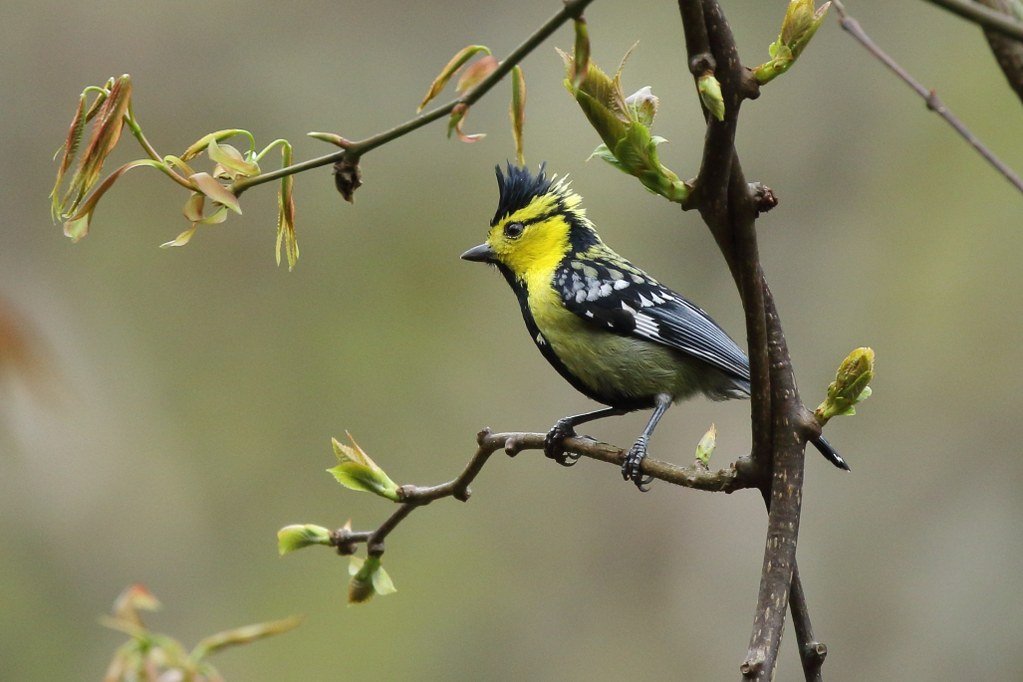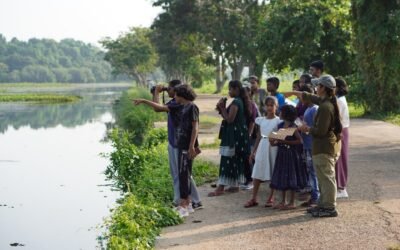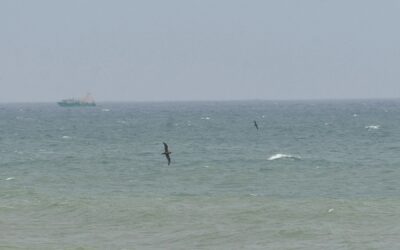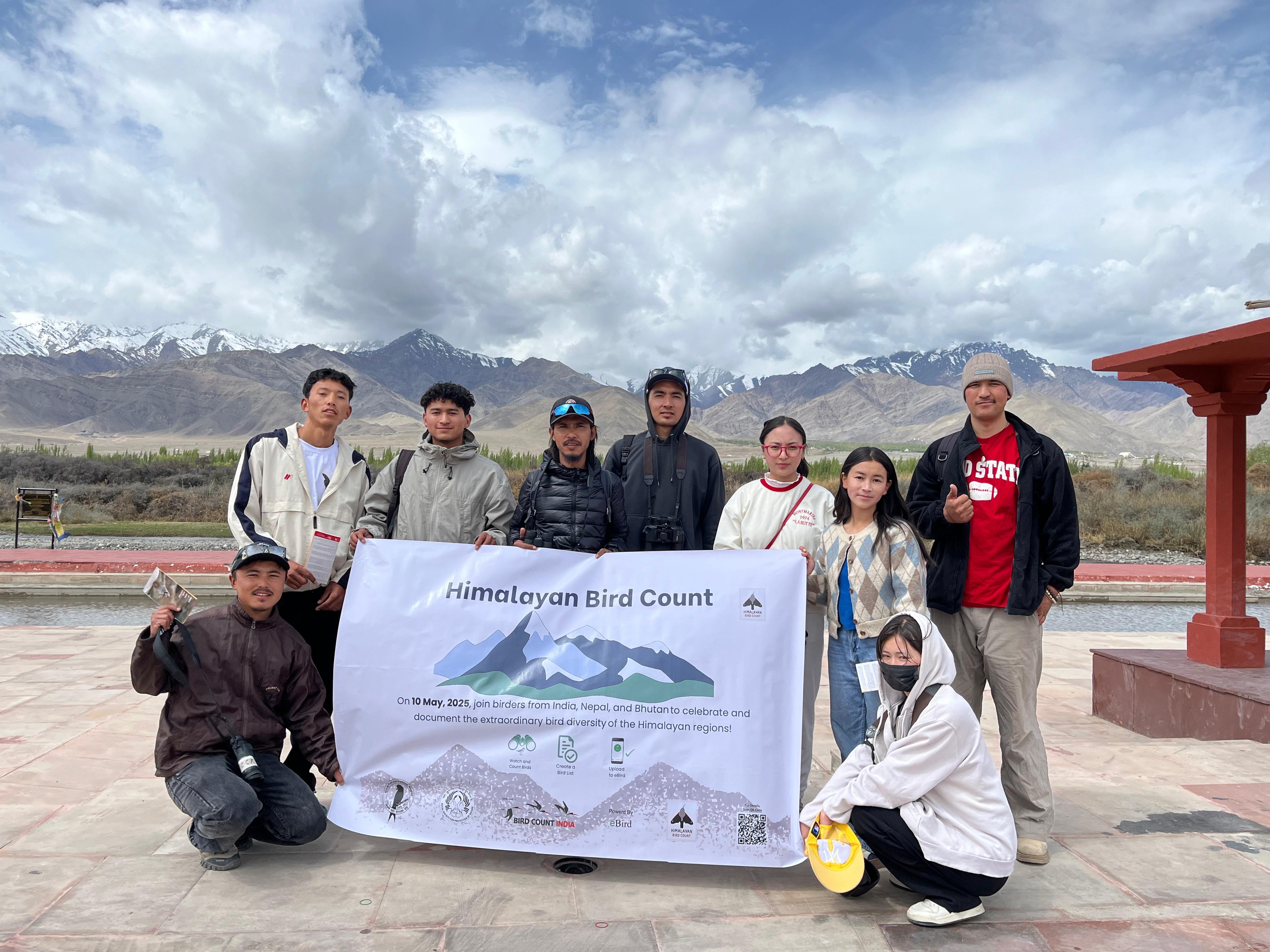Citizen science platforms like eBird have transformed how biodiversity data is collected and shared, enabling vast participation and scientific insight.
As this open data feeds into research and publications, fostering fairness, consent, and collaboration is essential to strengthen trust between scientists and citizen scientists. Bird Count India has put together a set of good practices/conduct that may be followed by the various stakeholders of citizen science. This is not binding. However, an explicit understanding is beneficial for fostering a thriving citizen science enterprise.
In English
- APPRECIATE the fact that observers are making time from their busy schedules to selflessly contribute towards citizen science
- RECOGNISE that consent for use of data from contributors before any publication builds trust, strengthens community, and even establishes legitimacy.
- RECOGNISE important data contributors appropriately. Specifically, recognise that writing is not the only requirement for being an author.
- RECOGNISE that databases are expected to be used, and legitimate use of database by an author who is not within the community is still a valid usecase.
- RECOGNISE the importance of timely publication of important observations; for crediting the right people, and guilt-free use of data by others.
- RECOGNISE the fact that all observers may not have the time and capacity to author a publication. Encourage shadow writing (writing for others) within the community.
- ACCEPT that special publications that compile observations of others is an existing practice, and it is needed for synthesis of knowledge, and must continue.
- RECOGNISE that the value-systems associated with such ‘compiled’ publications is different now in this world of citizen science and not appreciating the same may hinder citizen science contributions.
- RECOGNISE that the editors of journals play an important role in sustaining citizen science.
- ENCOURAGE editors to ponder beyond just content matter, including correct credits, acknowledgements, and even authorships – at least within their limits.
- RECOGNISE that it is up to the current generation to solve any differences in opinion, through deliberations, and establish a good practice for the younger, and upcoming citizen science communities.
- UNDERSTAND that this topic needs a larger discussion, beyond the ambit of this page, and even internationally.
- CREATE a world where both authors and citizen scientists benefit from data gathering and publication of results.
In Malayalam
- ഇവിടെയുള്ള എല്ലാ പ്രകൃതി നിരീക്ഷകരും അവരുടെ തിരക്കുകൾക്കിടയിൽ സമയം കണ്ടെത്തി പൗര ശാസ്ത്ര ഡാറ്റാ ബേസുകളിലേക്കു നിസ്വാർഥമായി സംഭാവന ചെയ്യുന്നത് തികച്ചും പ്രശംസനീയായ വസ്തുതയാണ്.
- ശാസ്ത്ര പ്രസിദ്ധീകരണങ്ങളുടെ രചനയ്ക്ക് മുന്നോടിയായി ഇത് സംഭാവന ചെയ്യുന്നവരിൽ നിന്നുള്ള സമ്മതം ശാസ്ത്ര സമൂഹത്തിലുള്ള പൗരരുടെ വിശ്വാസം വളർത്തുകയും സമൂഹത്തെ ശക്തിപ്പെടുത്തുകയും ചെയ്യുന്നുവെന്നു തിരിച്ചറിയുന്നു.
- ഇത്തരത്തിൽ ഡാറ്റാ സംഭാവന ചെയ്യുന്ന വ്യക്തികളെ ഉചിതമായി തിരിച്ചറിയേണ്ടതും പ്രധാനമാണ്. ശാസ്ത്ര പ്രസിദ്ധീകരണം എഴുതുന്നു എന്നത് കർത്തൃത്വം അഥവാ authorship നുള്ള മാനദണ്ഡമല്ല എന്ന് തിരിച്ചറിയുന്നു.
- അതേ സമയം public database കൾ ശാസ്ത്രത്തിന്റെ വളർച്ചയ്ക്ക് ഉപയോഗിക്കാനുള്ളതാണ്. ഇത് നിശ്ചിത സമൂഹവുമായി ബന്ധമില്ലാത്ത മറ്റു പലർക്കും നിയമപരമായി ഉപയോഗിക്കാനാവും എന്നത് വസ്തുതയാണ്.
- പ്രധാനപ്പെട്ട ശാസ്ത്ര നിരീക്ഷണങ്ങളുടെ സമയബന്ധിതമായ പ്രസിദ്ധീകരത്തിന്റെ പ്രാധാന്യം തിരിച്ചറിയേണ്ടതുണ്ട്. ശെരിയായ ആളുകൾക്ക് credit നൽകുന്നത് ശാസ്ത്ര വിവരങ്ങളുടെ നല്ല നാളേക്ക് അനിവാര്യവും, കുറ്റബോധമില്ലാതെ ഡാറ്റകൾ ഉപയോഗിക്കാൻ ഉതകുന്നതുമായിരിക്കും.
- എല്ലാ നിരീക്ഷകർക്കും ഒരു ശാസ്ത്ര ലേഖനം എഴുതാനുള്ള സമയവും ശേഷിയും ഉണ്ടാവാറില്ല എന്നത് വസ്തുതയാണ്. ഇത്തരത്തിലുള്ള ശാസ്ത്ര ലേഖനങ്ങൾ പ്രോത്സാഹിപ്പിക്കുന്നതിനു അതിൽ അവബോധമുള്ള വ്യക്തികൾക്ക് പൗരന്മാരെ സഹായിക്കാവുന്നതാണ്.
- ശാസ്ത്ര നിരീക്ഷങ്ങൾ സമാഹരിക്കുന്ന പ്രത്യേക ലേഖനങ്ങൾ പ്രസിദ്ധീകരിക്കുന്നത് നിലവിലുള്ള സമ്പ്രദായമാണെന്നും അത് തുടരേണ്ടതുണ്ടെന്നും തിരിച്ചറിയുന്നു.
- പൗര ശാസ്ത്രത്തിന്റെ ഈ ലോകത്ത് അത്തരം സമാഹരണങ്ങളുടെ മൂല്യവ്യവസ്ഥകൾ വ്യത്യസ്തമാണെന്നും അത് വിലമതിക്കാത്തത് ശാസ്ത്ര സംഭാവനകളുടെ വളർച്ചയ്ക്ക് ദോഷകരമാണെന്നും മനസിലാക്കുന്നു.
- പൗരന്മാരുടെ ശാസ്ത്ര സംരംഭങ്ങളെ നിലനിർത്തുന്നതിൽ ജേർണളുകളുടെ എഡിറ്റർമാരുടെ പങ്ക് പ്രധാനപ്പെട്ടതാണ്.
- എന്നിരുന്നാലും ശെരിയായ ക്രെഡിറ്റുകൾ, അംഗീകാരങ്ങൾ, രചയിതാക്കൾ എന്നിവയുൾപ്പെടെ ഒരു പരിധി വരെ ശ്രദ്ധിക്കാൻ എഡിറ്റർ മാരെ പ്രോത്സാഹിപ്പിക്കാവുന്നതാണ്.
- യുവജനങ്ങൾക്കും ഭാവി തലമുറയ്ക്കും പൗര ശാസ്ത്ര സമൂഹങ്ങൾക്കുമായി ഇത്തരം അഭിപ്രായ ഭിന്നതകൾ മറികടക്കാനും ബോധപൂർവം പ്രവർത്തിക്കാനും മെച്ചപ്പെട്ട സമ്പ്രദായങ്ങൾ സ്ഥാപിക്കാനും നല്ല മാറ്റങ്ങൾ കൊണ്ടുവരേണ്ടതിന്റെ ആവശ്യകതയും മനസിലാക്കുന്നു.
- ഈ വിഷയത്തിന്റെ സമകാലിക പ്രാധാന്യം മനസിലാക്കേണ്ടതും കേവലം കേന്ദ്രീകൃത ഗ്രൂപ്പുകളിലൊതുങ്ങാതെ ചർച്ച ചെയ്യേണ്ടതും അനിവാര്യമാണ്.
- ഡാറ്റ സമാഹരണത്തിൽ നിന്നും ശാസ്ത്ര ലേഖനങ്ങളിൽ നിന്നും രചയിതാകളും പൗര സമൂഹവും ഒരു പോലെ പ്രയോജനപ്പെടുന്ന ഒരു ഭാവി സൃഷ്ടിക്കേണ്ടത് അത്യന്താപേക്ഷിതമാണ്.
We thank the Kasaragod Birders group for bringing up this topic for discussion and framing the first version of these guidelines in both English and Malayalam. The Kasaragod Birders meeting on 08 October 2023 was attended by Shyamkumar Puravankara, Harish Babu M, Sreehari K Mohan, Raju Kidoor, Anitha A, Anoop Nair, Maxim Rodrigues, C Sashikumar & Praveen J and all members contributed equally towards framing the first version.
Header Image:Yellow-cheeked Tit Machlolophus spilonotus © Rahul Singh / Macaulay Library





Can you elaborate on shadow writing point ? Any examples ? I thought those who have a new finding or observation of importance, they will bound to publish it as an obvious next step.
Yes, but they might not have experience in writing, or writing in English, that would prevent them from taking this obvious next step.
In such cases, another person from the community helps in writing, while retaining the name of the original finder as first author, or even the only author.
Altruism rules the roost !
Glad to know kindness still exist 😊